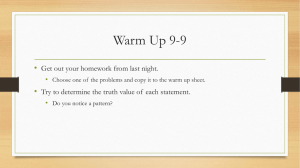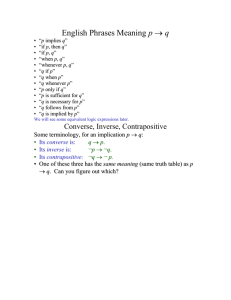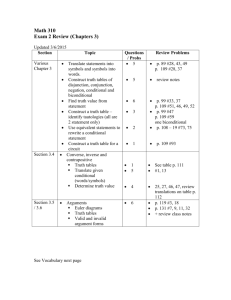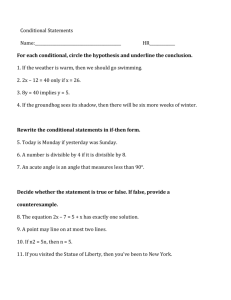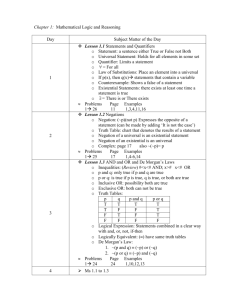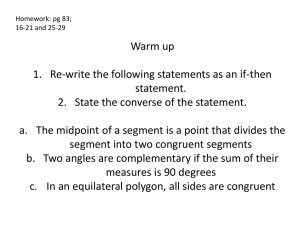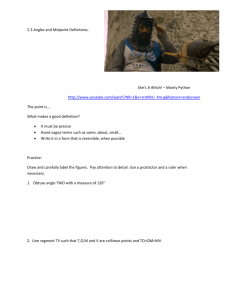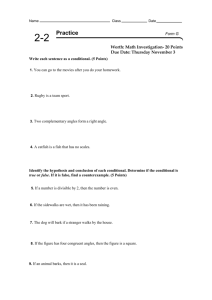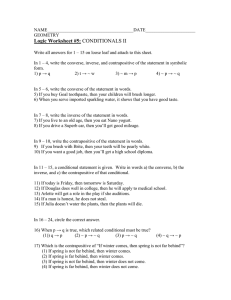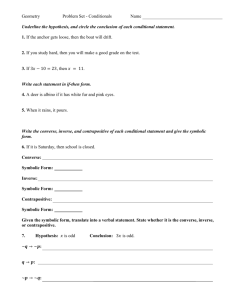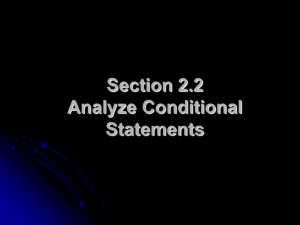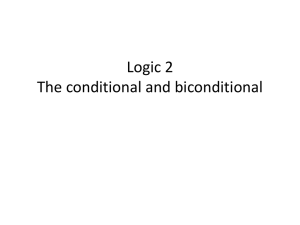Laws of Logic
advertisement
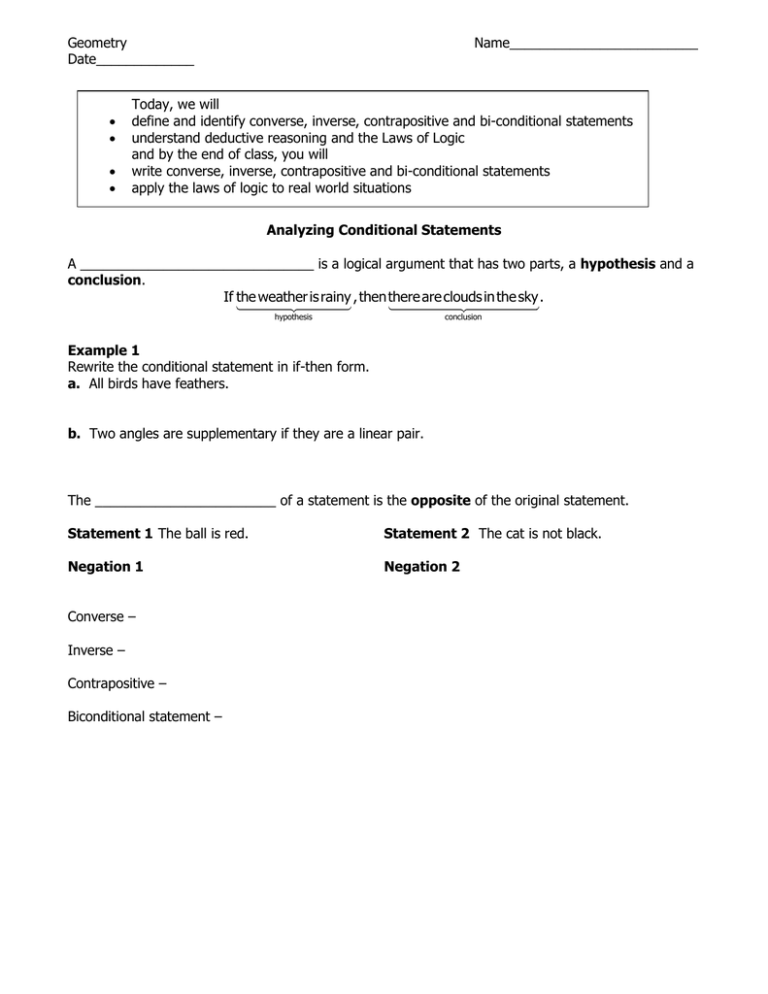
Geometry Date_____________ Name_________________________ Today, we will define and identify converse, inverse, contrapositive and bi-conditional statements understand deductive reasoning and the Laws of Logic and by the end of class, you will write converse, inverse, contrapositive and bi-conditional statements apply the laws of logic to real world situations Analyzing Conditional Statements A _______________________________ is a logical argument that has two parts, a hypothesis and a conclusion. If the weather is rainy , then there are clouds in the sky. hypothesis conclusion Example 1 Rewrite the conditional statement in if-then form. a. All birds have feathers. b. Two angles are supplementary if they are a linear pair. The ________________________ of a statement is the opposite of the original statement. Statement 1 The ball is red. Statement 2 The cat is not black. Negation 1 Negation 2 Converse – Inverse – Contrapositive – Biconditional statement – Example 2 Write the if-then form, the converse, the inverse, and the contrapositive of the conditional statement “Guitar players are musicians.” Conditional – Converse – Inverse – Contrapositive – Example 3 Write the if-then form, the converse, the inverse, and the contrapositive of the conditional statement “Harry Potter fans are awesome.” **Every definition can be written as a conditional statement in if-then form or as its converse. Both statements will be true.** Perpendicular Lines Definition – If two lines intersect to form a right angle, then they are perpendicular. m Converse – n Example 4 Write the definition of perpendicular lines as a biconditional. m n Example 5 Rewrite the statements as a biconditional. If Mary is in theater class, then she is in the fall play. If Mary is in the fall play, then she is in theater class. Applying Deductive Reasoning ____________________________________ uses facts, definitions, accepted properties, and the laws of logic to form a logical argument. Laws of Logic: Law of Detachment – Every Monday, Susie eats a banana for breakfast. Today is Monday. Law of Syllogism – If Bob has Mrs. Schutte for Geometry, then he’ll work and study hard. If Bob works and studies hard, then he’ll get an A for the year. If p, then q. If p, then r. If q, then r. Example 1 Use the Law of Detachment to make a valid conclusion in the true situation. a. If two segments have the same length, then they are congruent. You know that BC = XY. b. Every Friday and Saturday night, Becky rents a Redbox DVD. Today is Friday. Example 2 If possible, use the Law of Syllogism to write a new conditional statement that follows from the pair of true statements. a. If Jeff takes Chemistry this year, then he’ll take it 8th period. If Jeff has it 8th period, then Adam is Jeff’s lab partner. b. If x2 > 25, then x2 > 20. If x > 5, then x2 > 25. c. If a polygon is regular, then all angles in the interior of the polygon are congruent. If a polygon is regular, then all of its sides are congruent.
